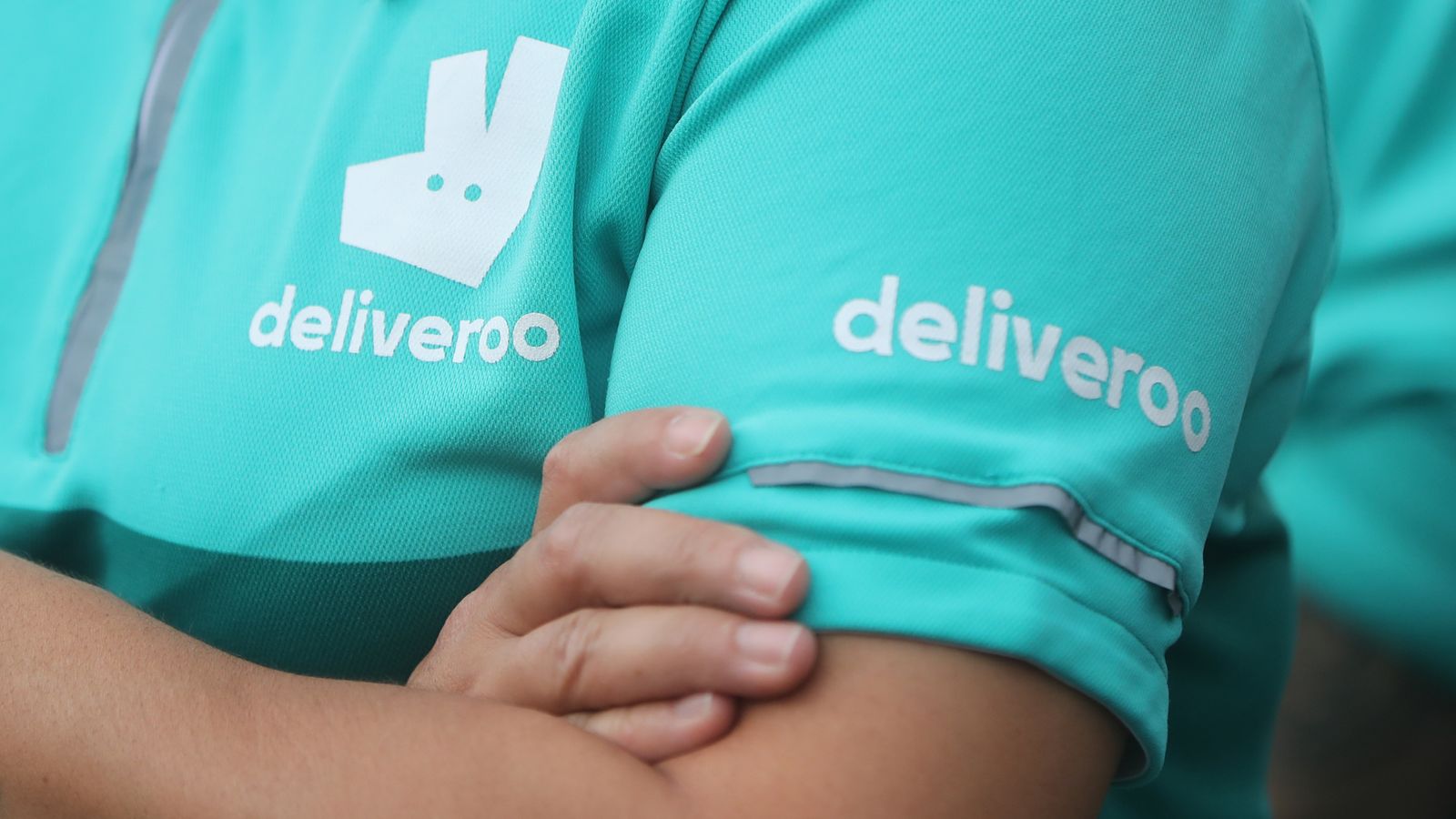UK Deliveroo riders are expected to strike over pay and conditions as unconditional trading commences in the company’s shares.
Hundreds of riders are expected to strike on Wednesday, with socially-distanced protests planned in London, York, Reading, Sheffield and Wolverhampton.
The Independent Workers’ Union of Great Britain (IWGB) said the riders want the living wage, safety protections and basic workers’ rights.
These include access to holiday and sick pay, an end to unpaid waiting times, and the right to refuse unsafe work without penalty.
It comes after the Bureau of Investigative Journalism analysed invoices from more than 300 riders over the past year, concluding that one in three made less than £8.72 an hour – the minimum wage for those aged over 25 – with some earning as little as £2 per hour.
Ahead of the strike, Alex Marshall, IWGB president and former bicycle courier, said: “Deliveroo presents a false choice between flexibility and basic rights but the Uber ruling showed that here as well as abroad, workers can have both.
“That is the least they deserve and what the public expects for our frontline workers.
“They said it couldn’t be done but by getting organised and speaking out, riders have triggered a domino effect which already slashed £3bn from Deliveroo’s valuation and that should give pause to any corporation that thinks precarious workers can be endlessly exploited without consequence.
“It’s time for Deliveroo to do the right thing, recognise its riders as workers and treat them like human beings.”
Sky News has approached Deliveroo for comment.
The strike comes as shares are expected to go on wider sale on Wednesday 7 April.
Last week’s debut was widely regarded as a flop, with shares slumping as much as 30%, wiping more than £2bn off the company’s initial £7.6bn valuation – just over a week after it was estimated at up to £8.8bn.
Some of the City’s biggest institutional investors had shunned the initial public offering (IPO) over concerns about Deliveroo’s working practices and the dual-class share structure which gives founder Will Shu greater control.
The failure left the company and its bookrunners red-faced and big question marks hanging over the City’s flotation ambitions.
From 31 March, customers could apply to buy shares through a £50m community offer via the company’s app but they could not sell them.
Once unconditional trading starts, the shares are available to the general public and those who already have them can sell them.
Chancellor Rishi Sunak had hailed the company as a “true British tech success story” when it confirmed in March that it would float in London.
And it certainly benefited from increased appetite for takeaways with dining out being banned or restricted during various coronavirus lockdowns: orders in January and February were 121% higher than during the same period a year ago.
But the company still made an underlying loss for the year of £223.7m.

